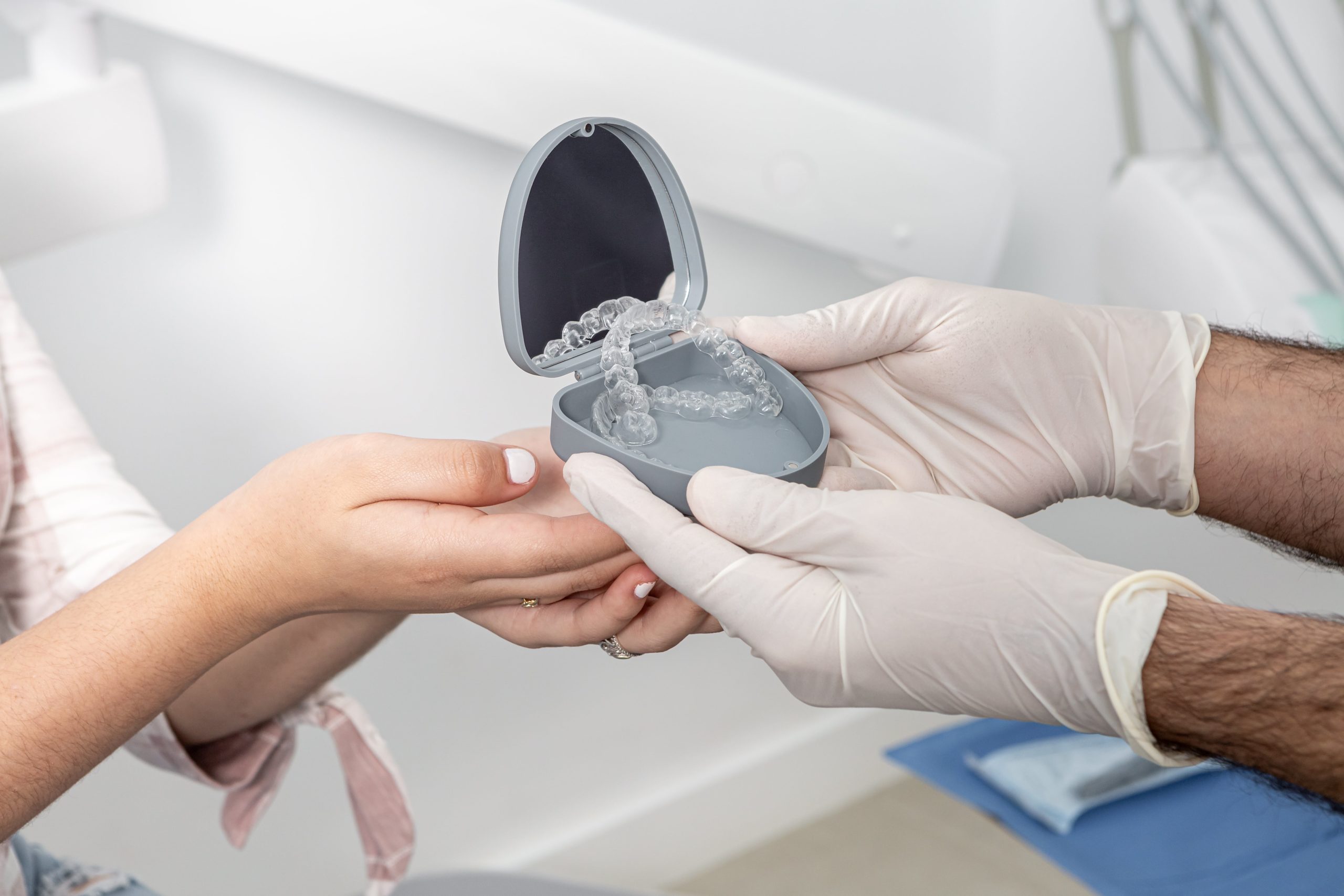You did your time and paid your dues, and now the braces are finally off! But you probably left the orthodontist’s office with something besides your new smile: a retainer.
Retainer use is an important part of post-orthodontic care. The fibers and ligaments that surround your teeth and anchor them to your gums need time to adjust before they can stabilize the new alignment of your teeth, and it can take four to six months for their new positions to become permanent.
Retainers provide additional support to prevent your teeth from shifting. Not wearing one consistently, however, can result in teeth shifting back over time into their original, pre-orthodontic positions. So, what else should you know about these essential orthodontic tools? Keep reading or talk to one of our orthodontists to learn more.
You can choose between different types of retainers.
There are different types of retainers, but they all serve the same purpose: keeping your teeth right where the braces left them. Your orthodontist will determine which kind is best for you based on your specific dental needs. There are two main categories: removable and permanent retainers.
Permanent retainers
Also called bonded retainers, they’re made of a curved wire that is cemented to the back of your teeth to keep them from moving. Permanent retainers are most commonly used on the bottom teeth and only a dentist or orthodontist can remove them.
Removable retainers
There are two different options for removable retainers:
Clear retainers
Clear plastic retainers are custom-made to match the shape of your teeth and hold them in place. The main advantages of clear retainers are that they’re more comfortable than a Hawley retainer and are essentially invisible, so they look more natural. The disadvantages are that they can become discolored over time and can’t be fixed if they break or adjusted if your teeth shift—you would have to buy a new retainer altogether.
Hawley retainers
Hawley retainers — also referred to as wire retainers — consist of a thin wire that wraps around the teeth and a thin piece of plastic shaped to fit the roof of your mouth or the inside of your lower teeth. Unlike a clear plastic retainer, this option can be repaired or adjusted for a better fit. The most prevalent cons of a Hawley retainer are its impacts on the wearer’s speech and that it can cause discomfort.
There are easy ways to get the most out of your retainer.
Caring for your retainer and maximizing its results can be simple:
- Wear it every night. If your orthodontist recommends it, wear it during the day as well for a few months after getting your braces off.
- Make putting your retainer in easier to remember by working it into your nightly routine.
- Clean your retainer and its case regularly.
- Avoid harsh chemicals and excessive heat when cleaning — always wash with lukewarm water.
When a retainer is properly cared for, it can last for 10 or more years. But retainers also experience regular wear and tear over time, so don’t be afraid to replace yours if necessary.
Is it time to take the next step in your orthodontic care?
Tiny Teeth Kid’s Dentistry & Orthodontics offers high-quality orthodontic services for every stage of the smile-perfecting process. In addition to priding ourselves on the level of care we provide, we make sure that care is available to anyone who needs it. That’s why we provide affordable options and take most insurances.
Whether you’re looking to get started with braces or need a new retainer, we’re here to help. Schedule an appointment today.
